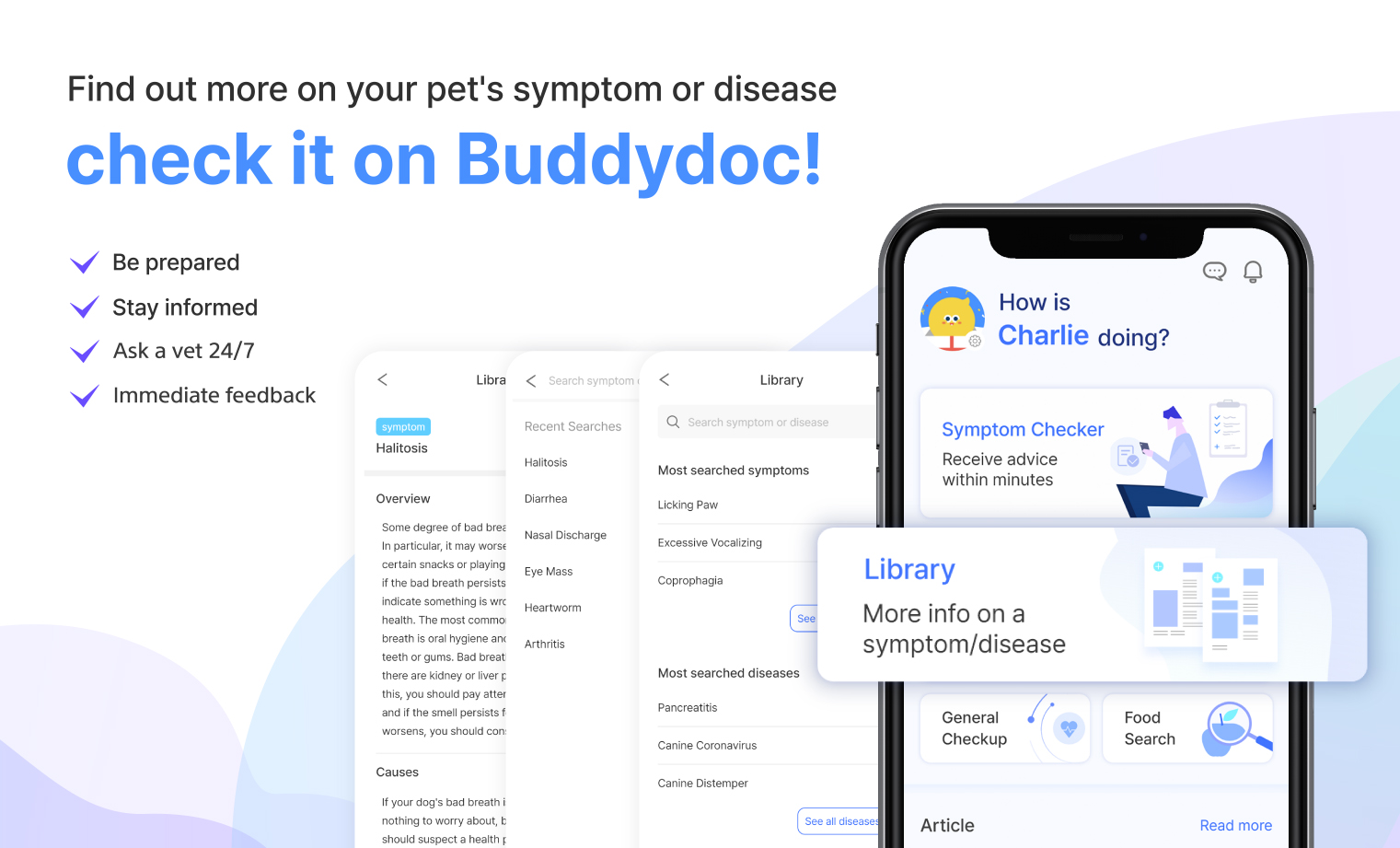DISEASES
Herpesvirus (CHV) in Dogs - Symptoms and Treatment for Canine Herpes
페이지 정보
본문


What is Canine Herpesvirus (CHV)?
Canine herpesvirus (CHV) or canine herpes is an infectious disease fatal to puppies and a reproductive health problem in adult dogs. The herpes virus is active at low temperatures and is more common in puppies than older dogs. CHV is more fatal in puppies 4 weeks and under because it can be difficult for them to maintain a constant body temperature to fight the virus. In adult dogs, herpes virus infection is recoverable and will cause upper respiratory infection, eye disease, and abnormalities in the genitalia. Even after recovery, the virus can continue to spread as a latent infection.
Causes of canine herpes virus
The herpes virus is spread through direct contact with an infected dog. It can be transmitted through the mouth, nose, or genitals. Sexual contact can also spread the virus. If a pregnant dog is infected, it can be transmitted to her offspring, resulting in a high mortality rate. The virus thrives in low-temperature environments, making puppies under 4 weeks of age particularly vulnerable. After the fourth week, puppies begin to learn how to control their body temperature better which improves the rate of survival. It's important to note that the virus can also be latent and can remain hidden in the body even after recovery from infection, potentially spreading to other dogs.
Symptoms of CHV in dogs
Symptoms are fairly different between puppies and older dogs due to how the herpes virus infection is able to spread within the body.
Symptoms of CHV in puppies:
Herpesvirus in puppies has an incubation period of approximately 4 to 6 days before symptoms appear in infected pups. Once clinical symptoms appear, there is a high risk of sudden death within 48 hours.
Symptoms of herpes virus infection in puppies include:
- Lethargy, weakness, constant crying
- Shortness of breath
- Nasal discharge
- Eye discharge, eye swelling
- Loss of appetite
- Diarrhea
- Rashes, red speckles on the skin
- Soft, odorless stool that is gray to yellow, or green
- Seizures
Symptoms of CHV in adult dogs:
Clinical symptoms in adult dogs are non-specific, as the same symptoms can also be caused by other diseases. These symptoms mainly manifest as upper respiratory, eye, and genitalia-related issues.
Symptoms of herpes virus infection in dogs include:
- Coughing, sneezing, runny nose
- Eye squinting, watery eyes, conjunctivitis, corneal ulcers
- Genitalia symptoms include inflammation, pus, pain
- In pregnant dogs, an infection can result in abortion, stillbirth, and even infertility.
Risk of canine herpesvirus CHV in dogs
The herpes virus is a common infection that, without treatment, will remain permanently in a dog's system. Adult dogs often recover quickly after becoming infected, but the virus remains dormant in the dog's body, making them a carrier and able to transmit the virus periodically. Mild symptoms may appear intermittently in adult dogs, but caution should be taken with pregnant dogs and puppies as the infection can be fatal. Male dogs that breed frequently are at a higher risk of contracting CHV.
It is important to note that the Canine Herpesvirus (CHV) can NOT infect humans.
How to manage herpesvirus in dogs at home and when to see the vet
Symptoms of CHV in adult dogs may resolve on their own, but if symptoms persist or worsen over time, it is recommended to visit the veterinarian as early treatment can be very effective. In the case of CHV in puppies and pregnant dogs, consider it an emergency and seek veterinary care soon as possible.
Canine herpesvirus diagnosis process

Diagnosis of the herpes virus in dogs is usually based on which clinical symptoms are present. As many other diseases can cause similar symptoms in dogs, the veterinarian may conduct any of the following tests to differentiate the exact cause of symptoms.
Diagnosing CHV in dogs can include the following tests:
- PCR tests are available
- Blood tests 2 weeks apart can help track a rise in immunity to the virus.
- Differential tests for bacterial infections in the mother or puppy including mastitis, canine parvovirus type 1, canine distemper, and canine hepatitis can be conducted.
- Tests for diseases such as brucellosis or toxoplasmosis can also be conducted to differentiate from other diseases. Toxoplasmosis can also infect humans.
In cases of sudden death or stillbirth, a post-mortem examination may also be conducted to diagnose the cause. This information can help in the treatment of puppies from the same litter.
Canine herpesvirus treatment
After the onset of clinical symptoms in puppies, treatment is often unsuccessful and many of them will, unfortunately, succumb to the illness. However, if treatment is administered before clinical symptoms appear, the prognosis is better. Antiviral drugs and antibodies from recovered females may be an effective treatment against the virus.
In adult dogs, the herpes virus often resolves on its own, and treatment is not typically required. However, the virus remains in the body after recovery and may cause intermittent symptoms. In adult dogs, mild symptoms may appear without treatment, but will eventually resolve themselves.
To manage secondary bacterial infections, antibiotic eye drops may be administered. If ocular symptoms are present, using NSAID eye drops and antiviral eye drops, such as idoxuridine and trifluridine, can also be used.
Prevention for canine herpes virus in dogs
Since the herpes virus is transmitted through direct contact, it is recommended to isolate pregnant dogs and puppies under 4 weeks of age, as the virus can be fatal for them. In addition, it is recommended that humans refrain from contact with other dogs before coming into contact with pregnant dogs or puppies, and frequently wash their hands after contact with other dogs. When puppies are born, it is important to keep them warm at a temperature of around 35°C (95°F). If the mother dog has previously been infected with the herpes virus and has developed antibodies, the puppies may receive these antibodies through the mother’s first milk and may not show clinical symptoms, even if they are infected with the virus. However, the level of antibodies in each dog can vary, and it is possible to confirm the level of antibodies in the mother's body through an antibody titer test. Currently, there is no vaccine available in the United States for the canine herpes virus, so it is crucial to practice good hygiene and isolate infected dogs to prevent transmission.
Find out more about your dog’s disease or symptoms in the Buddydoc Library!

The Buddydoc library is filled with everything you’d want to know about each symptom and disease your pet may experience. If you would like to find out more about the causes, signs, treatments, preventions, and more for your dog’s disease. Try out the Buddydoc app and search your pet’s symptom or disease in the Buddydoc library.












